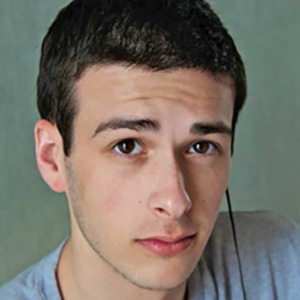
When I decided to attend Rutgers University, I made the decision to step out of the “Jewish bubble.” I knew that going to a secular college would introduce me to a variety of viewpoints and opinions that I had never been exposed to before. In my mind, this meant learning about new cultures and new ideas that I hadn’t thought about. I hoped for an intellectually stimulating, tolerant environment, but what I was met with couldn’t have been farther from it.
It’s difficult to pinpoint exactly when the anti-Semitism began to show itself on campus. Like so many historical trends, the anti-Semitic atmosphere seemed to arrive out of nowhere—completely unwarranted and without warning. The surprising fact is that the man that started the conversation was not some random student but, in fact, a tenured professor at the university.
Several months ago, Professor Michael Chikindas—head of the Rutgers Food Science Department—began making a series of anti-Semitic posts on his Facebook page. These posts included anti-Semitic cartoons, articles denouncing Israel’s right to exist and a slew of anti-Semitic conspiracies—with homophobic slurs to top it all off. Among these slanderous remarks were assertions that Jews today are “the real Nazis,” as well as the true perpetrators of the Armenian genocide. Though the posts go as far back as early May of this year, they did not come to light until mid-October of this fall semester.
Naturally, the Jewish community here was appalled. How could a tenured staff member—not to mention the head of an entire academic department—make such outrageous comments? Immediately, Rutgers Hillel issued a statement, calling the comments “a profound embarrassment to our university.” Shortly thereafter, a few of my friends in the Rutgers Jewish community organized a petition calling on the university to suspend Professor Chikindas, pending further investigation. In response, the university denounced his posts, stating they would be “reviewing the matter,” but that faculty were entitled to their private opinions.
As a Jew, I expect to be greeted with the same level of respect as any other demographic on campus. The lackluster, and continued inefficient, response from the administration made me feel as though my university had failed me. We live in an age of “safe spaces,” where any aggression—whether physical or verbal—towards a specific demographic is usually met with an outpouring of outrage. Yet when the target of this abuse is the Jewish community, the repercussions against the perpetrator are slim to none.
Just as our progress began to stagnate, I was contacted by Michael Cohen, the eastern director of the Simon Wiesenthal Center. Over the summer, I was privileged to be an intern in the Simon Wiesenthal Government Advocacy Internship Program. A major part of the program involved learning how to fight anti-Semitism, as well as advocate for Israel and the Jewish community as a whole. After explaining what the situation looked like from inside the university, and discussing possible courses of action, an idea dawned on me. The creator of the petition—Miriam Waghalter—is a fellow student, and a friend of mine. It didn’t take much thought to realize the importance of putting the two of them in contact. From there, we began to make serious progress.
With an organization like the Wiesenthal Center backing us, our cause received the crucial assistance it so desperately needed. Shortly after, the university sent out a letter with the news we had been hoping for: Professor Chikindas would be held accountable. He no longer holds his position as director of his department, nor does he teach any mandatory courses.
Understandably, this announcement brought some much-needed relief to our community. This decision would serve as a warning against bigotry and the spreading of anti-Semitic propaganda. But although we earned this victory—while this one battle was won—it was merely a piece of a much broader issue taking place at this university.
Since the events surrounding Professor Chikindas’ comments, more controversy has been brought to our attention. Set to teach a class titled “International Criminal Law and Anti-Corruption” is Mazen Adi. Prior to working at Rutgers, Adi served as a “diplomat” for the Assad regime in Syria. Essentially, an apologist for a dictator’s murderous actions is now set to teach a course on international crime. While speaking to the UN Security Council, Adi has not only defended the Syrian government’s genocidal attacks on its own citizens, but has gone on to perpetrate the absurd falsehood that the Israeli army is “trafficking Palestinian organs.”
Similarly, there is Professor Jasbir Puar, and her new book “Shoot to Maim: Debility, Capacity, Disability”—a novel dedicated to pushing the narrative that the Israeli army aims to leave Palestinians disabled, but alive, “in order to control them.”
Again, a simple question arises: Who let these people teach at my university? How could a public university allow for these libelists and slanderers to educate my fellow students in this so-called “progressive” environment? I certainly believe in the First Amendment, but the promulgating of these disparaging lies goes above and beyond a free speech issue. While Rutgers has finally—and only under much pressure—taken some action against Professor Chikindas, these two are left free to continue with their defamation, with no consequences in sight.
This is not just an issue for the Jewish community here at Rutgers, but for Jews across America. At my home in Englewood, the situation taking place on this campus is, quite literally, the talk of the town. After all, many residents send their children to Rutgers, as well as other state schools across the country.
The message must be sent loud and clear: this bigotry cannot, and will not, be tolerated any longer. If we do not fight to put an end to the spreading of falsehood, then we are doomed to have history repeat itself. I believe that with our continued efforts against this madness, the Jewish community—both here and across the country—will show that we all, myself included, will not just sit back and watch.
By Justin Feldman










